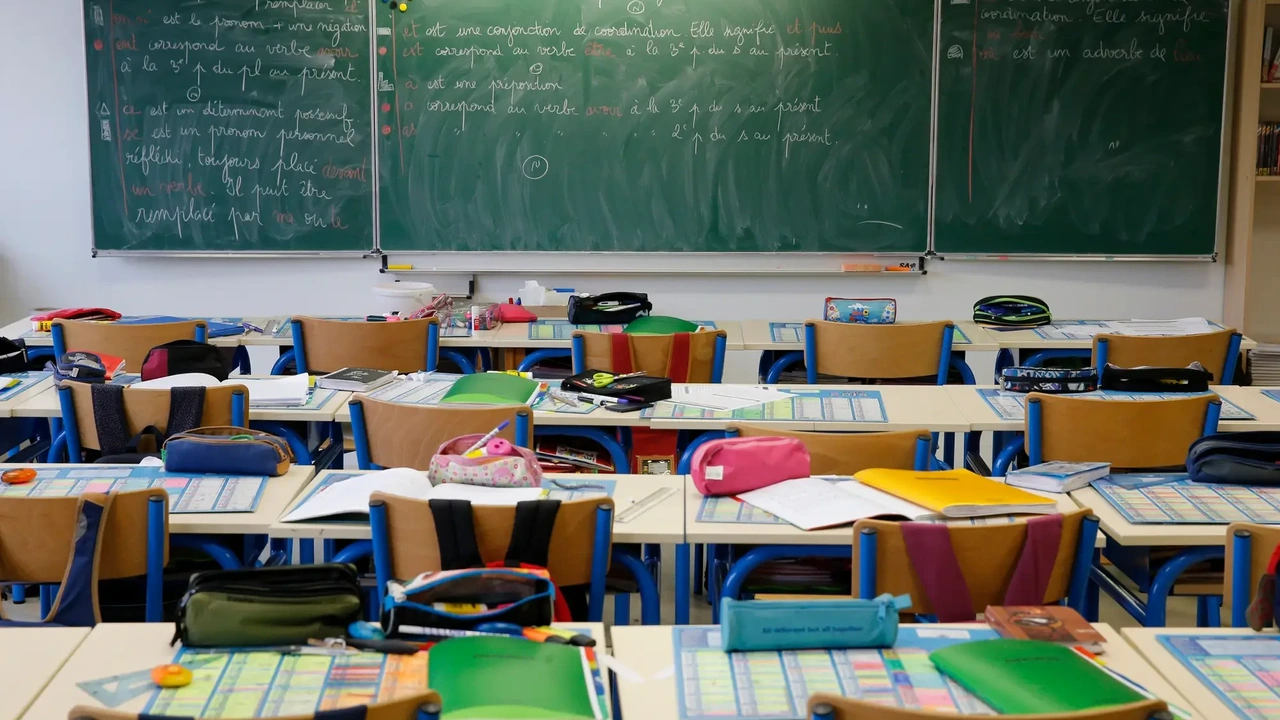
Why I Didn’t Quit Teaching
Jun 05, 2025I recently asked a teacher how this past school year went. Her response echoed what I’ve heard from many others: “Good, but exhausting.”
I asked what was good. She said, “Working with kids.”
I responded. “Well that’s good to hear. And what was exhausting?”
She laughed. “Working with kids.”
We talked about it more, and she shared the same things I’ve heard from teachers across the country in rural towns, big cities, public schools, and private ones. Teaching in a post-pandemic world is incredibly challenging. From AI to cell phones, overbearing parents to political noise, and rising student apathy, the hurdles just keep piling up.
On one hand, teaching is deeply meaningful work. On the other, it can drain your energy like nothing else. No matter how bright the good moments are, ending the year feeling inspired is tough.
And now that summer break is finally here, you might be surprised you made it at all. The physical and emotional toll may have left you questioning whether you can keep going. It might even feel hard to remember why you started in the first place.
Let me say this clearly for those who are feeling this way: you are not alone.
It is completely normal to feel this way right now. It’s normal to wonder, Is this still the right job for me? You chose a demanding profession, one that doesn’t allow you to phone it in. It often requires more than you feel you have to give, and that leaves many of us wondering if we’re enough. It’s okay to feel that way.
Did you catch that? It’s okay to feel that way.
In the past few months, I’ve spoken with educators from Colombia to Texas, New York to California. The message is consistent: we’re tired. And from this place of exhaustion, it can be hard to reconnect with hope or purpose.
Rediscover the higher-level purpose of your work
So how do you reignite your passion after a year like this? It begins with remembering why you started teaching in the first place.
Almost every teacher I’ve ever met got into this work to help students. Maybe you wanted to teach kids to read, or to speak confidently, or to fall in love with science. Maybe you wanted to be a steady adult presence in the life of a student who needed one.
For me, it was Mr. Peters, my sixth-grade teacher. He helped me through my parents’ divorce. His impact was enormous, and it played a major role in my decision to become a teacher.
Maybe this summer is the time to reconnect with your own story. Why did you think spending 180-plus days a year with young people would be worth it? Most of us started with a clear purpose. But after years of grading, testing, planning, managing behaviors, and navigating unexpected challenges, that clarity can fade.
Create a “Rainy Day” Folder
One tool that helps me reconnect with my purpose is my rainy day folder. It’s a simple folder I keep in my desk filled with notes from past students, parents, conference participants, teachers, and past colleagues. Thank-yous, stories, and small reminders of impact.
On hard days or at the end of a tough year, I revisit these notes. They remind me why I chose education They remind me that my work matters, even when it doesn’t feel like it. Sometimes we need that kind of physical reminder to keep going.
Make time to reflect
Psychologist Dr. Rick Hanson says our brains are like velcro for negative experiences and like teflon for positive ones. A single negative interaction can stick with us far longer than a string of successes. That’s why we have to dwell on the good. Without intentional reflection, the hard parts of the year will drown out the bright spots.
Summer is a time for rest, but it’s also an opportunity for reflection. Don’t let the year slip by without taking time to consider what worked and what didn’t. Ask yourself:
- What lessons or moments went well?
- What strategies increased student engagement?
- How can I bring more of that into next year?
- Where did I still find success, even in tough conditions?
Then consider what you want to do differently. Maybe a unit flopped. Maybe you didn’t make as many parent calls as you hoped. That’s okay. Just take the lessons, and let them shape what you do next.
Don’t be afraid to make changes
Maybe what you need this summer is a change. Perhaps the way you’ve been teaching is simply feeling stale. It might be time to try project-based learning, build in more collaboration, or rethink how your classroom is set up. A new idea, even a small one, can breathe life into your work.
You may not be tired of teaching. You may just be tired of how you’ve been teaching. Trying something new can rekindle your energy.
Actually take a break
And finally, take a real break. Go a full week without thinking about school. Read for fun. Watch movies. Sit outside. If you go on vacation, leave your laptop behind. Teaching is not a sprint. It’s a marathon. Rest isn’t just deserved, it’s essential.
When you rest, you come back better.
So if you are at the end of your rope today, struggling to find your passion for teaching, first, know you are not alone. Second, reflect on what went well and what you can do to change things up. And third, take a nice nap.
Thanks for everything you did this year.
Stay Connected With Trevor's Work
Join thousands of educators who receive weekly articles, videos, and inspiration from Trevor.
SPAM is the worst. I promise to only send you my best stuff and NEVER to share your email.

